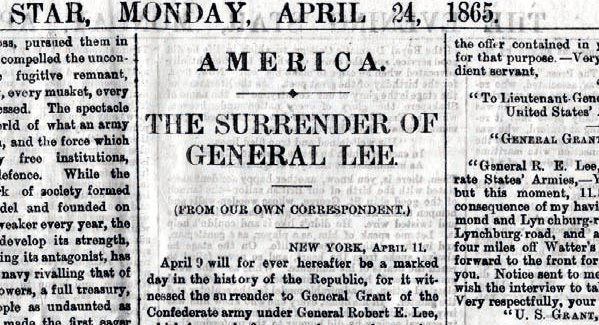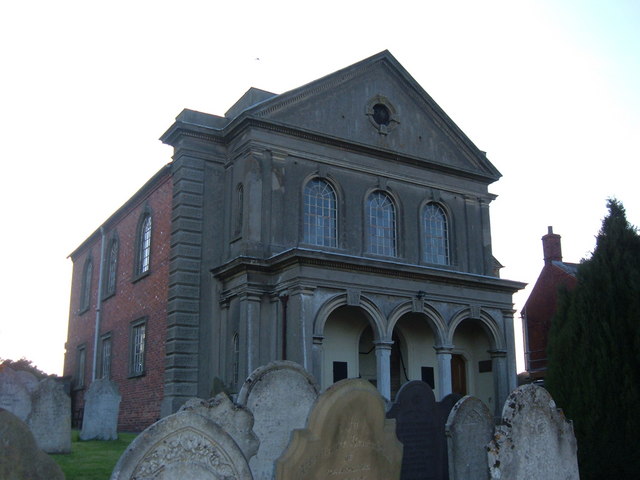|
Samuel Lucas
Samuel Lucas (1811 – 16 April 1865) was a British journalist and abolitionist. He was the editor of the ''Morning Star (London newspaper), Morning Star'' in London, the only national newspaper in Britain to support the Unionist cause in the American Civil War. He died knowing that legal slavery in America had ended. In 2010 a U.S. Embassy attaché visited the tomb of Samuel Lucas. Lucas lived to hear the "tidings of the destruction of the slave power in the United States" Biography Samuel Lucas was born in 1811 to a Quaker family in Wandsworth. Frederick Lucas was his younger brother. His father bought and sold corn. Lucas married his cousin Margaret Bright Lucas, Margaret Bright on 6 September 1839 who was also from a well connected family in the Society of Friends. His wife was to become famous in her own right largely after Lucas's death. Lucas worked for many good causes. He attended the World Anti-Slavery Convention in 1840 and he was included in the commemorative paint ... [...More Info...] [...Related Items...] OR: [Wikipedia] [Google] [Baidu] |
:en:Francis Augustus Cox
Francis Augustus Cox (1783–1853) was a prominent English Baptist minister. He began preaching in his teens, before training, and was then a minister for over forty years in Hackney. Cox was an active supporter of the formation of the University of London. He published numerous articles including a book of women's biographies and a history of the Baptist Missionary Society. Biography Cox was born in Leighton Buzzard in 1783 and he was baptised at the age of twelve. After some early preaching as a teenager, schooling in Northampton and receipt of a substantial inheritance from his grandfather he attended the Baptist College in Bristol. Cox became a Baptist minister after graduating with an MA from the University of Edinburgh.'Biographical Appendix: 1827-8 Committee', Committees for Repeal of the Test and Corporation Acts: Minutes 1786-90 and 1827-8 (1978), pp. 110-113Date accessed: 10 April 2009 In 1805 he was appointed minister in Clipston in Northamptonshire, before takin ... [...More Info...] [...Related Items...] OR: [Wikipedia] [Google] [Baidu] |
John Bright
John Bright (16 November 1811 – 27 March 1889) was a British Radical and Liberal statesman, one of the greatest orators of his generation and a promoter of free trade policies. A Quaker, Bright is most famous for battling the Corn Laws. In partnership with Richard Cobden, he founded the Anti-Corn Law League, aimed at abolishing the Corn Laws, which raised food prices and protected landowners' interests by levying taxes on imported wheat. The Corn Laws were repealed in 1846. Bright also worked with Cobden in another free trade initiative, the Cobden–Chevalier Treaty of 1860, promoting closer interdependence between Great Britain and the Second French Empire. This campaign was conducted in collaboration with French economist Michel Chevalier, and succeeded despite Parliament's endemic mistrust of the French. Bright sat in the House of Commons from 1843 to 1889, promoting free trade, electoral reform and religious freedom. He was almost a lone voice in opposing the Crime ... [...More Info...] [...Related Items...] OR: [Wikipedia] [Google] [Baidu] |
Baxter Langley
John Baxter Langley (1819 – February 1892) was a radical political activist and newspaper editor. Early life Langley son of Rev John Langley was born in Shrewsbury. His father was curate of the church of St Chad. The Langley's neighbours were the Darwins (parents of Charles Darwin). John Langley Snr moved to Wallingford in Oxfordshire (then Berkshire) where he became rector of St Mary's Church. John Baxter Langley was educated at Sherborne, and studied at King's College London and the Leeds School of Medicine. He qualified as a surgeon, and began practising in Blackburn. There, he founded a Mechanics' Institute for the education of workers. This experience led him to pursue a literary career; he quit medicine in 1846, to become the full-time secretary of the Manchester Athenaeum. Political activity Langley put himself forward as an ultra-radical candidate for Stockport at the 1852 United Kingdom general election although, like most ultra-radical and Chartist activists, ... [...More Info...] [...Related Items...] OR: [Wikipedia] [Google] [Baidu] |
Listed Building
In the United Kingdom, a listed building or listed structure is one that has been placed on one of the four statutory lists maintained by Historic England in England, Historic Environment Scotland in Scotland, in Wales, and the Northern Ireland Environment Agency in Northern Ireland. The term has also been used in the Republic of Ireland, where buildings are protected under the Planning and Development Act 2000. The statutory term in Ireland is " protected structure". A listed building may not be demolished, extended, or altered without special permission from the local planning authority, which typically consults the relevant central government agency, particularly for significant alterations to the more notable listed buildings. In England and Wales, a national amenity society must be notified of any work to a listed building which involves any element of demolition. Exemption from secular listed building control is provided for some buildings in current use for worship, ... [...More Info...] [...Related Items...] OR: [Wikipedia] [Google] [Baidu] |
American Civil War
The American Civil War (April 12, 1861 – May 26, 1865; also known by other names) was a civil war in the United States. It was fought between the Union ("the North") and the Confederacy ("the South"), the latter formed by states that had seceded. The central cause of the war was the dispute over whether slavery would be permitted to expand into the western territories, leading to more slave states, or be prevented from doing so, which was widely believed would place slavery on a course of ultimate extinction. Decades of political controversy over slavery were brought to a head by the victory in the 1860 U.S. presidential election of Abraham Lincoln, who opposed slavery's expansion into the west. An initial seven southern slave states responded to Lincoln's victory by seceding from the United States and, in 1861, forming the Confederacy. The Confederacy seized U.S. forts and other federal assets within their borders. Led by Confederate President Jefferson Davis, ... [...More Info...] [...Related Items...] OR: [Wikipedia] [Google] [Baidu] |
Grave Of Samuel Lucas In Highgate Cemetery
A grave is a location where a dead body (typically that of a human, although sometimes that of an animal) is buried or interred after a funeral. Graves are usually located in special areas set aside for the purpose of burial, such as graveyards or cemeteries. Certain details of a grave, such as the state of the body found within it and any objects found with the body, may provide information for archaeologists about how the body may have lived before its death, including the time period in which it lived and the culture that it had been a part of. In some religions, it is believed that the body must be burned or cremated for the soul to survive; in others, the complete decomposition of the body is considered to be important for the rest of the soul (see bereavement). Description The formal use of a grave involves several steps with associated terminology. ;Grave cut The excavation that forms the grave.Ghamidi (2001)Customs and Behavioral Laws Excavations vary from a sha ... [...More Info...] [...Related Items...] OR: [Wikipedia] [Google] [Baidu] |
Charles Dickens
Charles John Huffam Dickens (; 7 February 1812 – 9 June 1870) was an English writer and social critic. He created some of the world's best-known fictional characters and is regarded by many as the greatest novelist of the Victorian era.. His works enjoyed unprecedented popularity during his lifetime and, by the 20th century, critics and scholars had recognised him as a literary genius. His novels and short stories are widely read today. Born in Portsmouth, Dickens left school at the age of 12 to work in a boot-blacking factory when his father was incarcerated in a debtors' prison. After three years he returned to school, before he began his literary career as a journalist. Dickens edited a weekly journal for 20 years, wrote 15 novels, five novellas, hundreds of short stories and non-fiction articles, lectured and performed readings extensively, was an indefatigable letter writer, and campaigned vigorously for children's rights, for education, and for other social ... [...More Info...] [...Related Items...] OR: [Wikipedia] [Google] [Baidu] |
Bradbury And Evans
Bradbury & Evans (est.1830) was an English printing and publishing business founded by William Bradbury (1799–1869)England, Derbyshire, Church of England Parish Registers, 1538–1910. and Frederick Mullett Evans (1804–1870)General Register Office: Birth Certificates from the Presbyterian, Independent and Baptist Registry and from the Wesleyan Methodist Metropolitan Registry. in London.Bradbury and Evans at , last accessed January 2011. History For the first ten years Bradbury & Evans were printers, then added publishing in 1841 after they purchased '' |
Literary Magazine
A literary magazine is a periodical devoted to literature in a broad sense. Literary magazines usually publish short stories, poetry, and essays, along with literary criticism, book reviews, biographical profiles of authors, interviews and letters. Literary magazines are often called literary journals, or little magazines, terms intended to contrast them with larger, commercial magazines. History ''Nouvelles de la république des lettres'' is regarded as the first literary magazine; it was established by Pierre Bayle in France in 1684. Literary magazines became common in the early part of the 19th century, mirroring an overall rise in the number of books, magazines, and scholarly journals being published at that time. In Great Britain, critics Francis Jeffrey, Henry Brougham and Sydney Smith founded the '' Edinburgh Review'' in 1802. Other British reviews of this period included the ''Westminster Review'' (1824), ''The Spectator'' (1828), and ''Athenaeum'' (1828). In the Unite ... [...More Info...] [...Related Items...] OR: [Wikipedia] [Google] [Baidu] |
Cambridge University Press
Cambridge University Press is the university press of the University of Cambridge. Granted letters patent by Henry VIII of England, King Henry VIII in 1534, it is the oldest university press A university press is an academic publishing house specializing in monographs and scholarly journals. Most are nonprofit organizations and an integral component of a large research university. They publish work that has been reviewed by schola ... in the world. It is also the King's Printer. Cambridge University Press is a department of the University of Cambridge and is both an academic and educational publisher. It became part of Cambridge University Press & Assessment, following a merger with Cambridge Assessment in 2021. With a global sales presence, publishing hubs, and offices in more than 40 Country, countries, it publishes over 50,000 titles by authors from over 100 countries. Its publishing includes more than 380 academic journals, monographs, reference works, school and uni ... [...More Info...] [...Related Items...] OR: [Wikipedia] [Google] [Baidu] |






